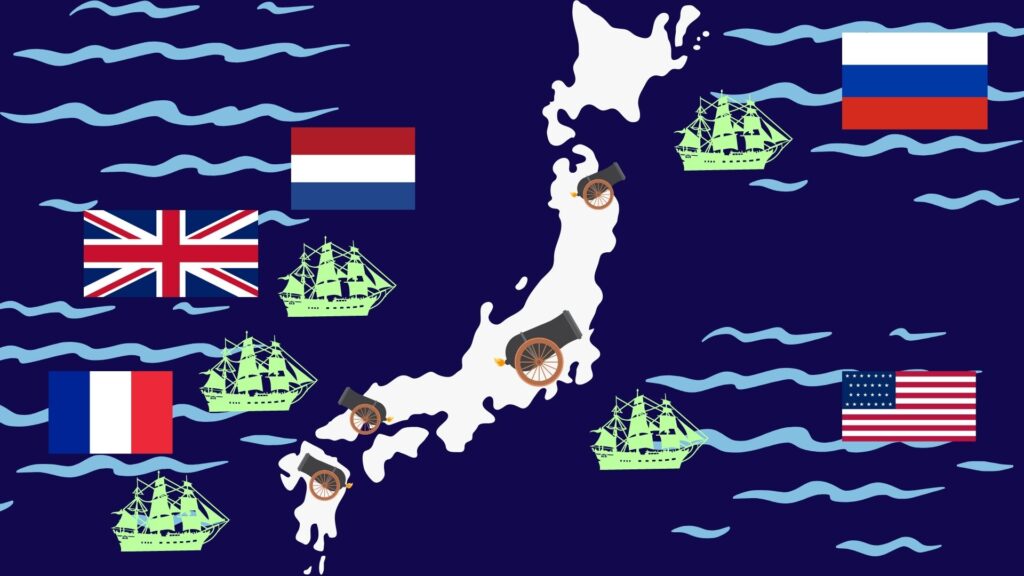Click here to go to the YouTube video

The first American consul and minister to Japan, Mr.Townsend Harris described a small village near Shimoda in his journal in 1856. “Kakizaki is a small and poor fishing village, but the people are clean in person and civil in manner. You see none of the squalor which usually attends poverty in all parts of the world. Their houses are as clean as need be.”

During the more than 200 years of isolation, Japan’s economy did not expand. Most people were poor except for a few wealthy merchants and feudal lords. Despite their poverty, people lived with cleanliness, courtesy, and a spirit of helping others.

In the 18th century, the shogunate suffered from financial difficulties. There were three main reasons for them:

first, foreign trade was severely restricted due to its seclusion;

second, the government continued to manage its finances mainly with rice;

and third, the frequent occurrence of natural disasters such as volcanic eruptions and earthquakes.

A number of political reforms were implemented to restore the finances of the shogunate. However, these reforms produced little results, and the shogunate continued to be in dire straits.

In 1716, Tokugawa Yoshimune became the 8th shogun. He carried out many reforms to increase tax revenues and appoint talented people. He is a popular shogun who was even featured in a TV drama.

In the latter half of the 18th century, the political reforms were led by Tanuma Okitsugu, a senior counsel. He implemented progressive policies to expand the size of the economy by encouraging commerce and increasing trade in Nagasaki. However, he was dismissed after the eruption of Mount Asama and the famine that followed.

Another senior counsel, Matsudaira Sadanobu, took over the reform. He criticized Tanuma’s commercial policies and reverted back to the traditional rural economy.

Around this time, ships from Russia, England, and other western nations began to approach the Japanese coast demanding trading. The shogunate bombarded foreign ships and continued its exclusionism.

In the 19th century, revolts by the people suffering from famine became frequent. Among them, the rebellion of the shogunate official, Oshio Heihachiro, in Osaka in 1837 shocked the authority.

In 1841, a senior counsel, Mizuno Tadakuni, attempted to restore the political system, but it soon came to a standstill.

While the authority of the shogunate was weakening, the clans in western Japan that had succeeded in restoring their finances came to gain a stronger voice against the shogunate.
Thank you for reading.




Comment
I love the efforts you have put in this, thankyou for all the great articles.